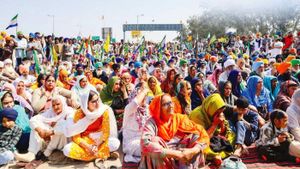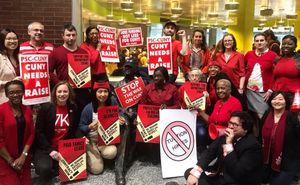With Hamburg’s upcoming election making waves, the latest polls suggest some intriguing shifts among the political parties. A recent survey conducted by Trend Research for Radio Hamburg and Zeit indicates the Social Democratic Party (SPD) remains the leading force, albeit with notable losses compared to the 2020 elections. The survey results, drawn from online interviews with 886 eligible voters conducted between December 5 and December 10, show the SPD capturing 32% of the votes, down from the previous election by nearly 7 percentage points.
Meanwhile, the Greens are feeling the heat, with projections placing them at 20%, reflecting a decline of 4 percentage points since their prior result. Conversely, the Christian Democratic Union (CDU) appears to be gaining ground, boosted significantly with an increase of 6 percentage points, putting them at 17%.
The surprising standout is the Alternative for Germany (AfD), which is projected to double its share, reaching around 10%. The Left party maintains its foothold with 7%, but the Free Democratic Party (FDP) and the coalition led by Sahra Wagenknecht (BSW) seem to be struggling, each reportedly gathering only 4% of the vote, which would not meet the necessary threshold to secure seats.
Despite these shifts, public satisfaction with the current red-green coalition remains relatively strong. When asked which governing party did the best job, 40% of respondents favored the SPD, compared to just 16% for the Greens, and surprisingly, 44% felt both parties performed equally well. This reflects a complex relationship between voter sentiment and party performance as the election approaches.
Looking forward, the election is just two and a half months away, creating palpable suspense. Speculations abound whether these trends will develop or flounder as the SPD holds onto its stronghold yet feels the pinch of losing votes. This dichotomy poses questions about the effectiveness of their governance and whether newer political alliances might gain traction.
Adding to the current political climate are budget discussions taking place within the Bürgerschaft, involving significant financial decisions for the upcoming two years—2025 and 2026. The Senate has proposed record expenditures of 44 billion euros, which is nearly 7 billion euros higher than the current budget. These discussions can set the stage for party positioning and public perception as the elections draw near.
The impending votes will take place on March 2, and with the rising costs of living and pressing issues around housing and welfare, the SPD's handling of budget allocations will be instrumental. Their Housing-First project aimed at helping the homeless continues to receive funding alongside enhanced financial support for consultations for women facing violence. This agenda appears to resonate positively with voters, allowing the SPD to maintain some degree of public backing.
Throughout the previous decades, Hamburg Politics has often shown resilient tenacity, but this election could be different. Political analysts and observers closely monitor these polls, parsing the public's mood as they weigh the impact of social issues, economic uncertainty, and local governance. The underlying sentiment seems to suggest voters are eager for tangible progress and alignment with their needs, creating potential for parties who effectively address these topics.
Many find themselves juggling holiday preparations—a familiar balancing act of work and festive obligations—similar to the busy atmosphere within the Bürgerschaft. The legislative assembly works under pressure, gearing up not just for the upcoming fiscal plan discussions, but also for the looming election picture. The SPD must navigate these turbulent waters, especially relevant with current public frustration over increasing costs of living and challenges facing everyday citizens.
The outcome of the Hamburg elections is still very much up for grabs, with certain areas feeling the tension of uncertainty. For voters, every percentage point is precious; it's the difference between representation and absence. The upcoming election not only reveals Hamburg's political dynamics but also reflects broader social currents impacting the city.



